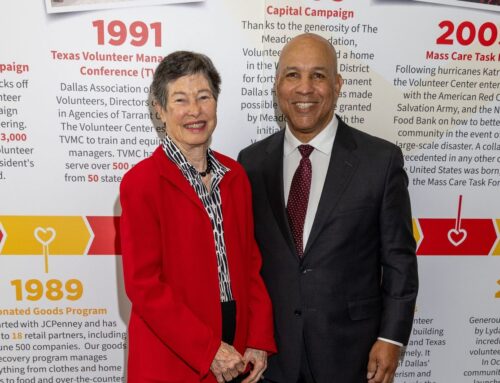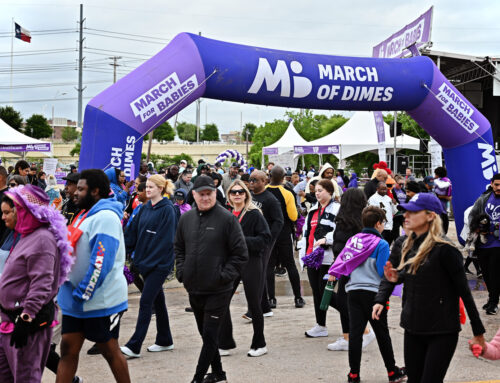Who’s up for a Jeopardy-style trivia game about the City of Dallas budget for 2023-24?
Here are some questions and answers about the pending city budget that we should be asking (and getting answered) our council representatives and city staffers:
- The number of Dallas residents has increased by 4.6% since 2012.
- The number of full-time equivalent employees at the city has increased by about 40%.
- The city’s initial budgeted expenditure amount has increased by about 75%.
- Why does the city’s residential property tax rate show a 7% decline since 2012, while the amount of revenue from residential property taxpayers increased by 117%?
- Why are residential property owners in Dallas bearing a greater share of the city budget? Residential property taxes increased, as a percentage of the city budget overall, from 10.8% to 13.4% — $334 million — since 2012.
The budget process is a pain
Wading through the city budget is a painstaking task: This year’s budget is hundreds of pages, with lots of charts and graphs, but the statistics aren’t always presented the same way from year to year, making line-item comparisons virtually impossible without city guidance.
For example, we (and apparently even the city) can’t even determine from examining the last 11 annual budgets exactly how many city employees were employed and how much those employees been paid each year.
We figured this question would be an easy one for the city, so we asked it in a Freedom of Information Act request.
Even the city doesn’t have all the answers
The city’s response?
They only had those numbers available for the past three budget years, even though a chart from a couple of years ago generically spells out the employee numbers without providing actual stats.
The actual response: “The City of Dallas Budget office does not have a report that includes actual FTEs (full-time equivalents) for budget years. The Controller’s Office has a report that includes the amount paid to employees for 2020, 2021 and 2022, but the report does not include FTE data. Please clarify you are looking for the number of employees paid?”
(In response, we reiterated our original request, asking for FTEs and their overall compensation annually for budget years 2012-2013 through 2023-2024 and pointed out that the city charted those numbers a couple of years ago without specifying exact data. We’re awaiting a follow-up response.)
Someone’s paying attention
Council members and Mayor Eric Johnson appear to be paying attention; some of them are asking good questions about the budget, too.
In an email to his mailing list, Johnson talked about a recent budget workshop with City Manager T.C. Broadnax: “One message was made clear during the budget workshop: The City’s spending is outpacing Dallas’ growth.”
Further down the lengthy budget-oriented email, Johnson said this: “We must find a way to reduce the skyrocketing property tax burden for our City’s residents.”
Even later: “Common sense tells us (and City staff has affirmed) that the size of and cost to run Dallas city government cannot grow in perpetuity. To avoid drastic cuts in future years, it is necessary to get serious now about delivering essential services more efficiently and cost-effectively.”
Want to be heard?
All of your budget comments, questions and statistics can be directed to city staff and council reps at the series of budget town hall meetings throughout the city (and online) coming up beginning today (Aug. 14) and running through Aug. 24.
Often, these meetings generate minimal attendance by voters and taxpayers, leaving council reps to go it alone when trying to figure out what residents want when it comes to city spending. Can’t or don’t want to physically attend a meeting: You can send your council member an email outlining your thoughts.
Council members also have the results of a 2023 ETC Institute survey of Dallas residents indicated surveyed residents believe homelessness (75% of respondents), crime (61%), drugs (60%), infrastructure/streets (55%) and aggressive solicitation and panhandling (45%) are the city’s biggest issues, with top overall priorities among respondents infrastructure maintenance and police services.
Additionally, 24% of respondents agreed or strongly agreed that “they receive a good value for the tax dollars they pay.” Twenty-nine percent were “neutral” on that question, and 47% “disagreed” or “strongly disagreed” they receive good value for their tax dollars.
Hoping for the best
Overall, respondents seemed to be rooting for the city, saying the generally enjoy living and working here and appreciate access to arts and cultural events and sense of community. But respondents generally do not want to contribute many tax dollars for arts and cultural events/groups and other less-important line items (according to survey respondents) at the expense of crime, safety and infrastructure priorities.
Another study insight: We’re generally frightened to be out and about in the city after dark, especially Downtown and in city parks.
ETC has conducted a similar survey in 2014, 2016, 2018, 2020 and 2023. In every major quality of life category, the number of respondents selecting the rating “excellent” or “good” has declined, primarily between 2020 and 2023.
Bottom line: The Advocate will keep asking questions and trying to break down key elements of the budget, as our limited time allows.
But if you care about your property tax dollars and your quality of life, being heard at budget meetings this coming few weeks (beginning tonight) are your only real chance to impact what will be happening in the city during the upcoming 12 months.
Want to help us with city budget reporting?
The Advocate is a non-profit 501(c)3 corporation that has covered Dallas neighborhoods for the past 32 years. We don’t have the resources to conduct the type of year-round study of City finances and expenditures that should be done annually — no one in Dallas journalism has those resources these days. If you’re interested in helping financially support our effort to shed light on where our tax dollars are going by helping us afford a full-time City Government reporter focused on how City expenditures impact our neighborhoods, please reach out to us at editor@advocatemag.com.







